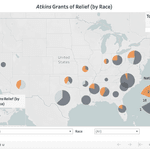DPI Analysis: The Issue of Foreign Nationals in the Courts
The Issue of Foreign Nationals in U.S. and International Courts
DPI Page: International
More than 70% of the world’s countries have abolished capital punishment in law or practice. The U.S. is an outlier among its close allies in its continued use of the death penalty.
Overview
Some of those on death row in the U.S. are citizens of other countries. Most nations of the world, including the U.S., are parties to a treaty (Vienna Convention on Consular Relations) governing the treatment of one nation’s citizens when they are arrested in another country that is a party to the treaty. Among other protections, the treaty requires that the arresting authorities inform all foreign detainees without delay of their right to have their consulate promptly notified of the arrest so that legal aid and other forms of assistance can be provided.
The U.S. has not always abided by the provisions of this treaty, particularly when the foreign national is being held by state authorities. The Supreme Court has permitted numerous executions to go forward despite violations of the treaty, saying that federal courts lack the power to address the issue if the lawyer appointed to represent the prisoner failed to timely raise it in the state courts. At least 34 foreign nationals have been executed in the modern era of the U.S. death penalty. Most had raised a claim that they had not been advised of their right to consular notification and that the resulting lack of consular assistance harmed their defense. Nevertheless, progress has been made in informing law enforcement authorities of their obligations under the treaty.
At Issue
International courts and tribunals — including the International Court of Justice (ICJ) and the Inter-American Commission on Human Rights — have found that the United States has violated international law in the cases of death-sentenced foreigners by failing to comply with this treaty. As a remedy, the ICJ ruled that the United States must provide effective judicial review of Vienna Convention violations in death penalty cases. However, while the U.S. is bound under international law to comply with the ICJ judgment, the U.S. Supreme Court has ruled that requiring states to comply with the treaty requires an act of Congress. The position of the U.S. in this matter has raised concerns about reciprocity: will U.S. citizens in foreign countries be able to effectively invoke their Vienna Convention protections when arrested?
What DPI Offers
Through the work of Human Rights Research, DPI has lists of all foreign nationals on U.S. death rows and all foreign nationals executed in the modern era. DPI has issued a report on the international implications of its death penalty and keeps track of court decisions on this matter both in the U.S. and internationally.
News & Developments
News
Mar 23, 2022
Report: Fewer Nations Using the Death Penalty for Drug Offenses, But Executions and Secrecy Are Up in Those that Do
Fewer countries are using the death penalty for drug offenses, but according to a new global report, executions increased in those that did and took place in proceedings characterized by…
Read MoreNews
Apr 12, 2021
Capital Case Roundup — Death Penalty Court Decisions the Week of April 5, 2021
NEWS (4/8/21) — Nevada: The Nevada Supreme Court has granted capital defendant Wilber Ernesto Martinez-Guzman’s emergency motion to stay a premature deadline the trial court had set for his lawyers to file a claim that he is ineligible for the death penalty because of intellectual disability. A trial court in Reno had set an April 20 deadline for Martinez-Guzman, four months earlier than the time…
Read MoreNews
Dec 07, 2020
Capital Case Roundup — Death Penalty Court Decisions the Week of November 30, 2020
NEWS (12/4/20) — Nevada: The Nevada Supreme Court has overturned the death sentence imposed on Mexican foreign national Carlos Gutierrez. In a 4 – 3 ruling, the court held that Nevada had violated the Vienna Convention on Consular Relations when police and prosecutors failed to notify Gutierrez of his rights to consular assistance by his government. The court further held, based upon extensive mitigating evidence presented with the assistance of the…
Read MoreNews
Dec 04, 2020
DPIC Analysis — Intellectually Disabled Defendants of Color, Foreign Nationals Disproportionately Subject to the Death Penalty
Defendants of color and foreign nationals who are intellectually disabled are disproportionately likely to be sentenced to death, a Death Penalty Information Center analysis of cases involving intellectually disabled defendants…
Read MoreNews
Oct 02, 2020
Texas Court of Criminal Appeals Reverses Course, Takes A Second Foreign National with Intellectual Disability Off Death Row
For second time in eight days, the Texas Court of Criminal Appeals (TCCA) has reversed course after initially rejecting a death-row prisoner’s claim of intellectual disability and has resentenced the prisoner to life. The decisions, both involving foreign nationals and both supported by local prosecutors, marked the sixth and seventh time that Texas courts have vacated death sentences imposed on intellectually disabled capital defendants since…
Read More



